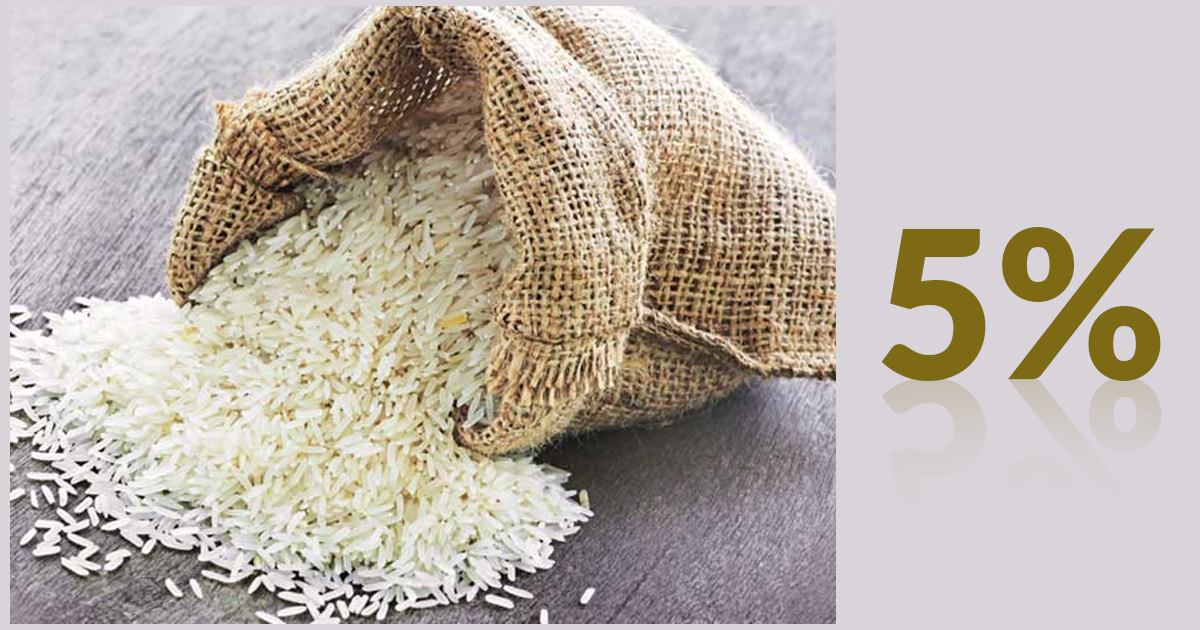The rice lovers across India now have to pay a bit more to enjoy their favourite meal, as the profit margins of the branded Basmati rice manufacturers and exporters are expected to face a bit of decrement due to the liable 5% GST implemented from July 1.
The effect of 5% GST will be neglected because of the sharp increment in abroad prices. According to some official reports, country’s per-unit average for basmati rice exports has increased up to USD 995 a tonne for April-May, compared to USD 790 a tonne for the same period last year.
Gurnam Arora, joint managing director, Kohinoor Foods said, “Prices have risen 25 per cent over the past few months on the building of a pipeline inventory in Iran, the largest importer, comprising over a quarter of India’s annual basmati rice export, and the Middle East. There is fear in the market that Iran might stop issuing licenses for basmati rice import. Hence, importers, there are building inventory to avoid any shortage.”
5 Misconceptions About GST Which Everyone Needs to Understand
In spite of having reduced Iranian demand, the country has recorded a massive amount of four million tonnes of basmati rice shipment during 2016-17, which is almost similar to the previous year. Furthermore, China has also granted the registration of 14 new Indian companies for basmati rice export, which points at the increment of these stats in the coming future.
Deepak Jotwani, assistant vice president at rating agency ICRA said, “Imposition of GST is likely to put branded players in a somewhat disadvantageous position, compared to the unbranded rice segment. More likely, the branded players will witness some erosion of profitability, as they’d look to absorb the GST impact and maintain pricing parity with the unbranded segment.”
Apart from this, one more issue is expected to arise if the GST rate will only be applied to the registered brands under the Trade Mark Act. The brands or businesses, which are established but still not-registered are expected to get benefit in many ways. For this, many in the sector have asked the Union finance ministry to resolve this.
The Basmati rice industry was initially based on on the export market, however, in some recent years, this industry has also covered an appreciable part of the domestic market. Some major companies have tried their level best to establish their brands in the domestic market. As a result of increased penetration of modern retail stores, and increasing purchasing power of consumers, the basmati rice consumption in the domestic market have seen a healthy growth.
